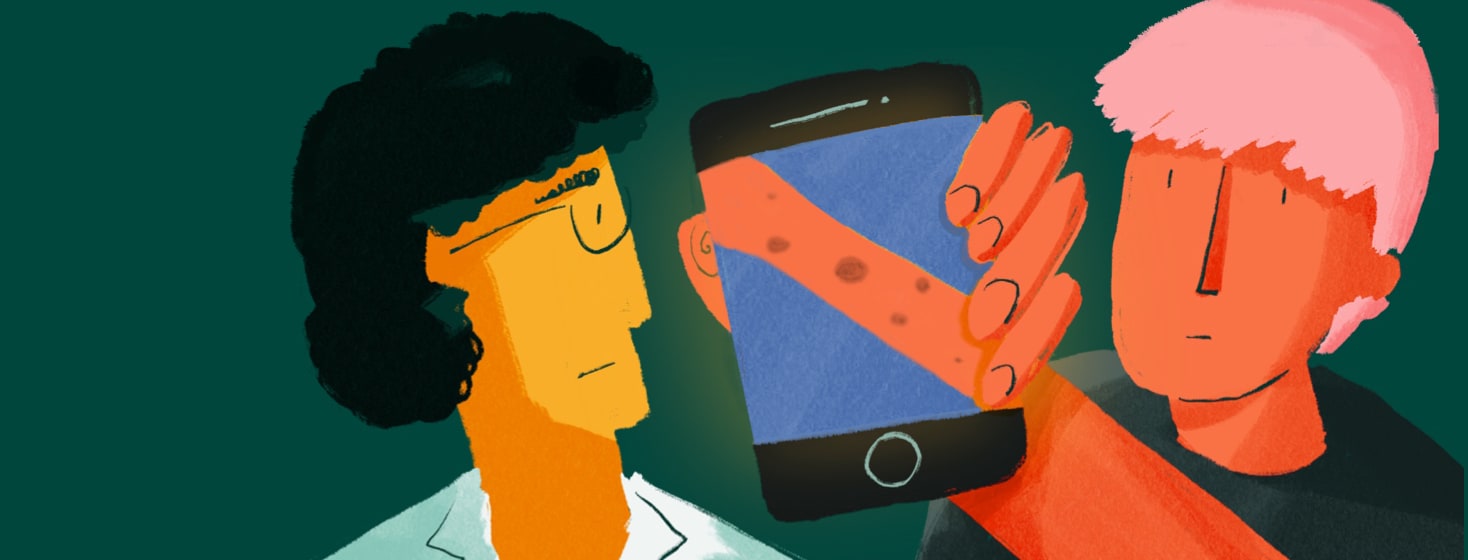Skin Conditions I've Experienced With IBD
The thing about IBD is, it’s known as an “invisible illness” because no one can see that you are actually ill and suffering. But one visible sign of IBD can be the different skin conditions that are secondary to IBD and in my case, Crohn’s disease.
I have experienced psoriasis, dry skin and eczema as a direct result from my Crohn’s but I also had plaque psoriasis, acne and rashes from different medications because of it as well. Having said that, there are different types of skin conditions to look out for.
Start a Forum
Types of skin conditions
The two most common in my experience are erythema nodosum and pyoderma gangrenosum. The main difference I've noticed between the two is that erythema nodosum seems to come and go in correlation with intestinal inflammation (flares) while the other does not seem to be related to my flares.
Here is what I have gathered about both from my own experience, and discussions with healthcare professionals. You should always consult with your own doctor when experiencing any changes in your body:
- Erythema nodosum usually appears on my lower extremities (shins) or forearms and are bumps under the skin that look like dark bruises. These come and go with flares and usually resolve on their own but cold compresses, rest and Tylenol (ibuprofen) can help with the pain. In more severe cases, a doctor may prescribe prednisone or cyclosporine. Consult with your doctor.
- Pyoderma gangrenosum starts out as red bumps under the skin but can develop into painful pus-filled ulcers that can spread. These are not related to flares. These can be treated with wound care, Tylenol for pain, antibiotics, biologics, topical or oral corticosteroids. I've learned there may be a problem if taking immunosuppressive medications, which could keep the lesions/ulcers from healing properly. Talk to your doctor.
Medication side effects
For me personally, my skin conditions would come and go. I discovered an easy treatment for dry skin and eczema was simply hydration. Lots and lots of water especially when it got bad. For any rash that came up I would use a topical cream (I use Germoline) and that seemed to work but it also could have been connected to flares.
Prednisone and Remicade (infliximab) caused acne and plaque psoriasis for me. I was on high dose prednisone for many years and not until I was on a maintenance dose (5 - 10 mg/day) did the acne die down. I still get some acne but usually on my shoulders and back.
Plaque psoriasis
What scared me the most was the plaque psoriasis. I had scalp psoriasis for years, mainly from lack of hydration and prednisone but about two or three years into Remicade infusions I noticed large blotches appearing on the top of my head, right at the crown. Of course, my natural reaction was to pick at them, please do not pick them! These only made them bleed. I tried many different natural home remedies as well as medicated shampoos etc., but nothing seemed to work.
It was very embarrassing for me and I felt as though everyone was staring at my head (even though the weren’t). So, on top of thinking everyone was already staring at me because of my Crohn’s, I felt as though more people were staring at me. I started wearing baseball hats which people I knew thought was strange because I never wore hats.
I finally brought it up with my GI and she referred me to a dermatologist. I suggested to her that maybe it was the Remicade but she was unsure about that, so I asked the dermatologist and he flat out said “No” without even considering it. He took a biopsy of one of the infected areas but came back negative (not sure what he was testing for).
Oddly enough, when my body eventually became immune to Remicade and I was switched to Humira, the plaque psoriasis went away on its own. Go figure. This is an example of wishing doctors would listen and not dismiss patients.
Subtle signs
My advice going forward, if you are experiencing skin conditions and you have IBD, make sure to tell your doctor or GI even if you think it’s nothing. It could be a sign of something else going on or reactions to medications. Make sure to show them any changes to your skin no matter how subtle.

Join the conversation